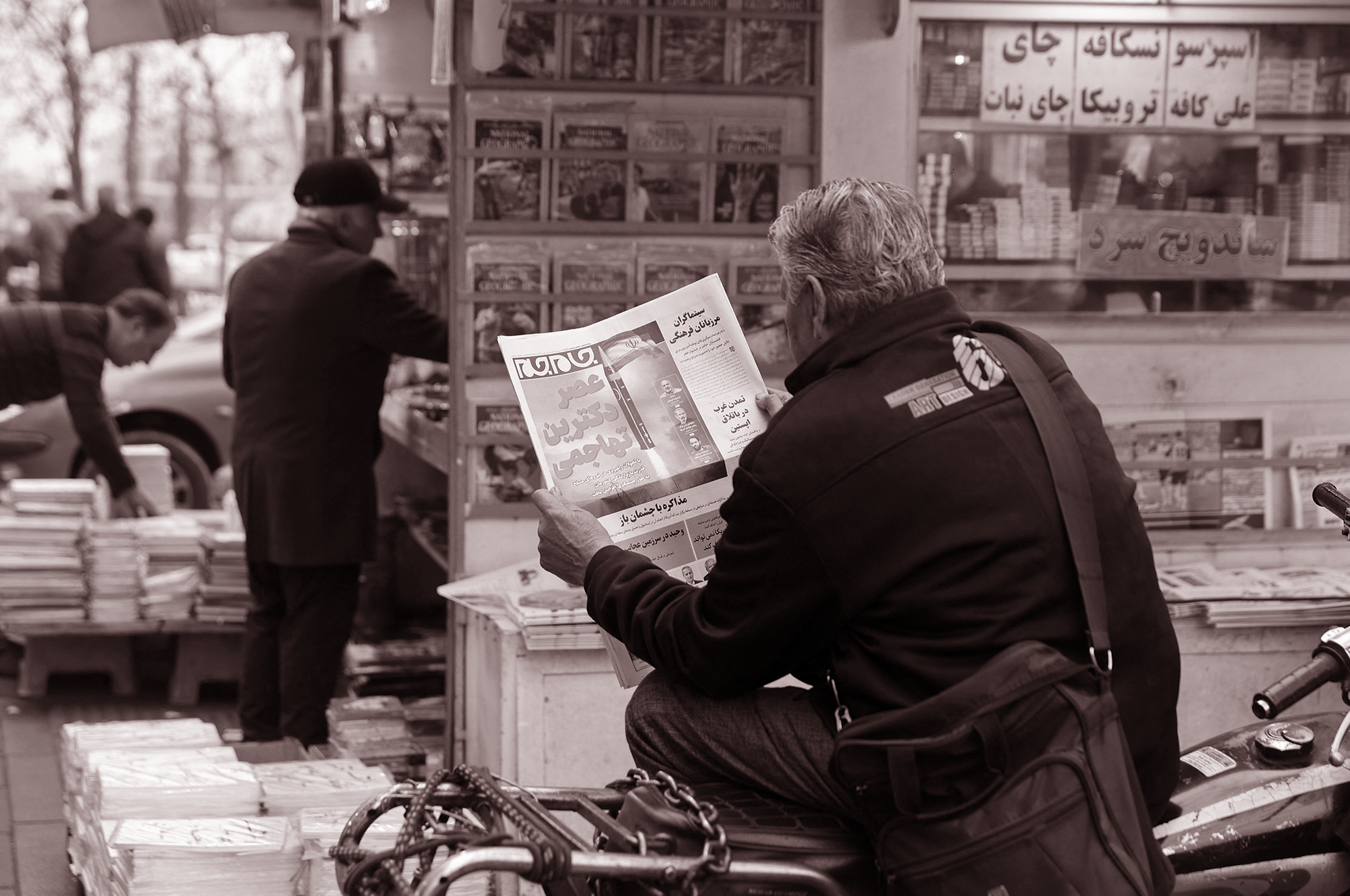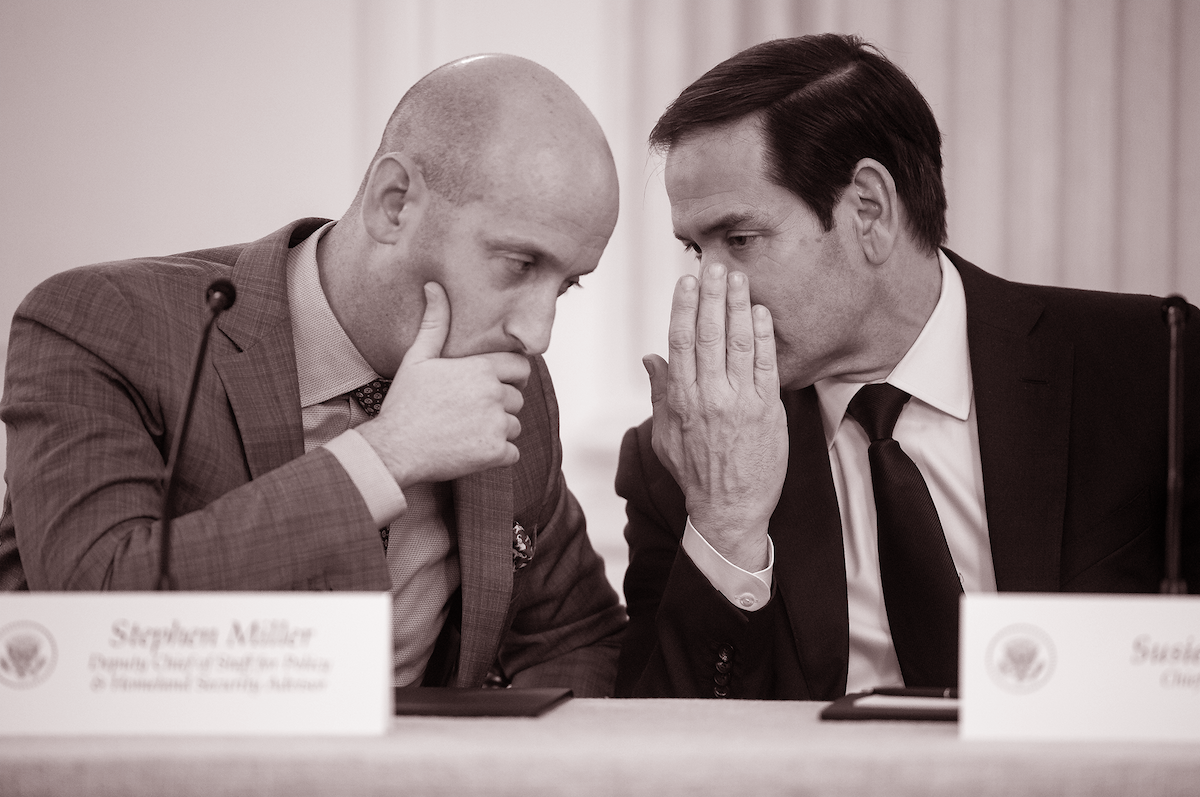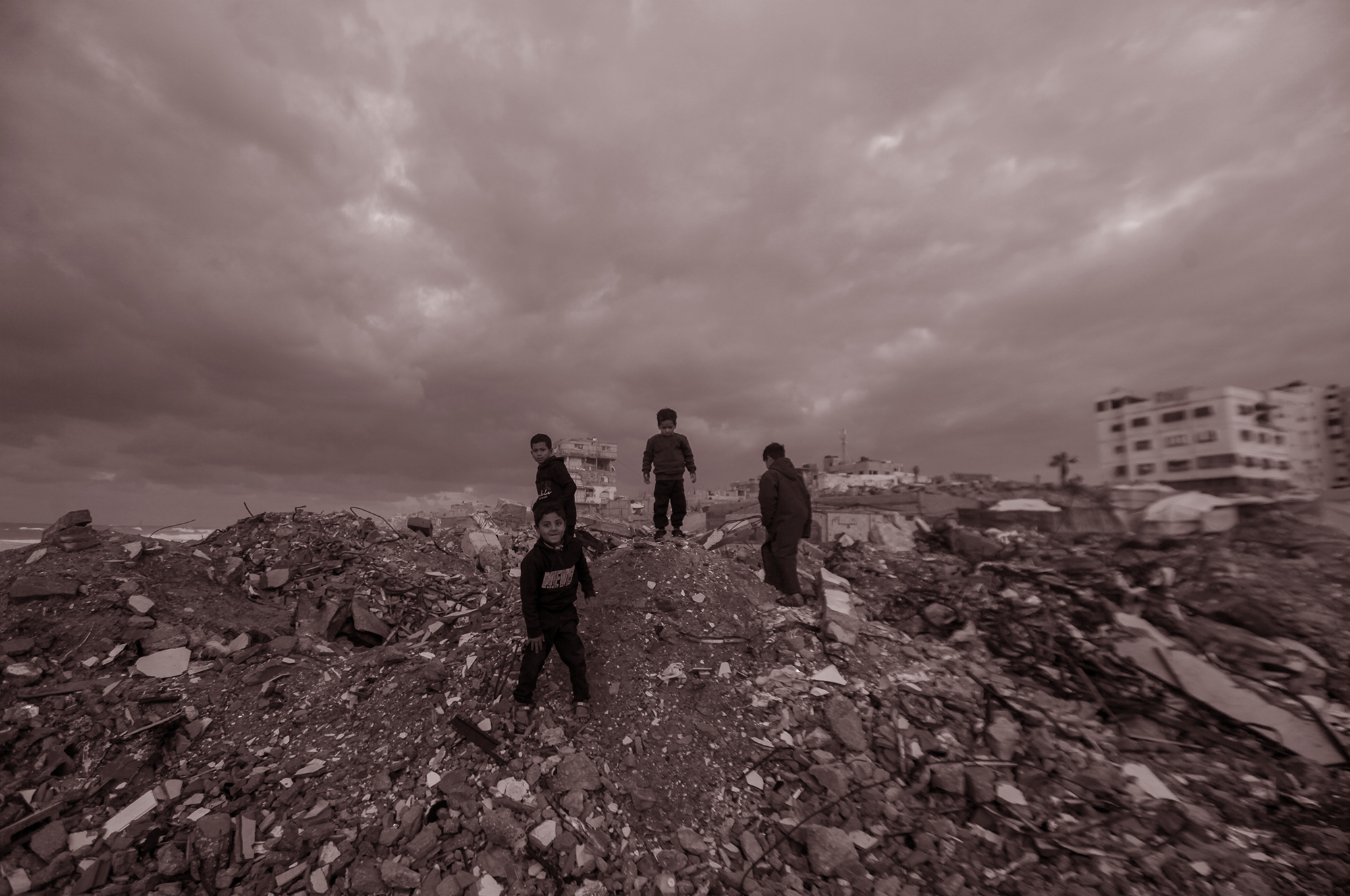Episode 7: At the Cross-Roads (Again)
David Eisenhower, Margaret Hoover, and U.S. Foreign Policy’s Future
The 2016 U.S. presidential election may have been the most divisive election in modern memory. The aftermath has left the United States in a period of “agonizing reappraisal” over America’s role in the world. Four years later, the United States appears to still be at a crossroads between Donald Trump’s vision of an “America First” foreign policy and Joe Biden’s promised restoration of a “liberal international order.” This week, host Mark Hannah is joined by Margaret Hoover and David Eisenhower, prominent descendants of two American presidents, to discuss what is at stake for foreign policy in next week’s election. Does Donald Trump represent a paradigm shift in American foreign policy? Is the restoration which Joe Biden seeks possible? They also discuss America's relationship with China, a topic which looms large in American foreign policy today. Does China’s emergence as a competitor augur a coming conflict or can we avoid a second cold war?
Listen Here: Apple Podcasts | Google Play | Libsyn | Radio Public | Soundcloud | Spotify | Stitcher | TuneIn | RSS
Margaret Hoover is the host of PBS’s “Firing Line,” a conservative political commentator, and a regular contributor for CNN. She is the great-granddaughter of President Herbert Hoover and serves on the board of overseers at the Hoover Institution at Stanford University. Follow her on Twitter: @MargaretHoover.
David Eisenhower is an author, public policy fellow, and professor at the University of Pennsylvania, where he is the Director of the Institute for Public Service. He is also the host of “The Whole Truth with David Eisenhower,” on American Public Television (APT). He is the grandson of President Dwight Eisenhower and the son-in-law of President Richard Nixon.
This podcast episode includes references to the Eurasia Group Foundation, now known as the Institute for Global Affairs.
Show notes:
Archival audio:
The China debate: Are US and Chinese long-term interests fundamentally incompatible? (Brookings Institution, October 31, 2018)
Here's What Happened During The Last Major U.S. Trade War (CNBC, March 19, 2018)
Explained: How Trump got played by China (Joe Biden Campaign, September 5, 2020)
Biden stands up for China (Donald Trump Campaign, April 9, 2020)
Debate: Biden Calls Out Trump's Lies About China (New This Media, October 22, 2020)
Transcript:
October 27, 2020
MARK HANNAH: My name is Mark Hannah, and I'm your host for None of the Above, a podcast of the Eurasia Group Foundation. With just days to go until the 2020 presidential election, we are bringing you two very special guests, two political and even presidential progeny who are quite prolific and prominent in their own right. I've got Margaret Hoover and David Eisenhower.
Margaret Hoover is the host of PBS's Firing Line. She's a former Bush Administration official, a conservative political commentator, and a regular contributor to CNN. She's also the great granddaughter of President Herbert Hoover. David Eisenhower also joins us, and among his many accomplishments, including being the director of the Institute for Public Service at the University of Pennsylvania, my alma mater, Joe Quaker's, and the host of his own PBS show, The Whole Truth with David Eisenhower. He is the grandson of President Dwight Eisenhower and also the namesake for Camp David—fun, historical fact.
Margaret and I were both very fortunate to take a class with David Eisenhower a year apart from each other two decades ago and be mentored by him while undergraduate students. So, Margaret, David, this is great to be with you. I'm very glad to be speaking with both of you today about presidential leadership and the upcoming election.
As I mentioned, we're one week away from a very consequential election, and I want to kick it off with you, David. What is at stake here when it comes to America's role in the world? What are the two sort of competing visions which Joe Biden and Donald Trump offer voters?
DAVID EISENHOWER: Well, they are offering competing visions. But I think the most important thing at stake in this election is something more basic, and that is resolving our leadership problem in this country. What's unique about the one hundred days of the Trump administration is that the 2016 election really did not resolve the leadership question in this country the way elections are supposed to. We had a disputed outcome. I think Trump was challenged in a basic way for years upon taking office, and I think this has put the entire course of American foreign policy under a cloud. And so, what 2020 is going to do—and we're not far from this now—is going to make a call. The American public is going to make a call. And once we've made a call and people can line up, and we know where our policy is, and we know what our policy direction is going to be—I think good things follow from that. But I think the choice Americans are making is fairly clear. The Trump administration has been a time of agonizing reappraisal. I can actually relate to that. The early Eisenhower administration with John Foster Dulles as Secretary of State was a period of agonizing reappraisal. We have been reappraising our relationship to an international trading system, our relationship to NATO and established alliances, or relationship with China. All of this has been reassessed. We're in a process of reassessment. I would say Biden would be, but I think he's offering sort of a restoration of a status quo ante. Certainly in spirit, I can't help but think the Trump era has permanently affected our international agenda to some degree. I don't think we will approach the China question in the same spirit as we have in the past.
Interlude featuring archival audio
EISENHOWER: But I think it's a—are we reappraising? Are we still on a mode of reappraisal, or are we going back to a kind of status quo ante?
HANNAH: Now, I do think Joe Biden is running as a restorationist who wants to return us to our traditional place in the world. But is that what voters want? In 2016, Donald Trump won in part by offering a very different vision of America's role in the world than for, say, the foreign policy leadership in Washington. Does that success of Donald Trump speak to a desire among Americans for a different approach?
MARGARET HOOVER: I always hesitate to read too much into voters from 2016 dramatically agitating for a direct and cataclysmic paradigm shift in American foreign policy, because it was really seventy-eight thousand voters in three states that made the difference in, as you guys know, the Electoral College and vote. There is no doubt, Mark, to your point, that Donald Trump was the outsider candidate. And there is—to the extent that he represented a breach and a break from the status quo in many veins in terms of his economic approach and his foreign policy approach. I think, to David's point, he did cause a real paradigm shift in American foreign policy, especially vis a vis the China question. I'm not so sure even a restorationist or a restorative foreign policy like Joe Biden can ever take us back entirely to where we were prior to the Trump presidency vis a vis the question of China, because I just I think his—what you want to call it—leadership or his instincts with respect to how to do that were more—some would say—bullying or confrontational and really did awaken the American foreign policy establishment to China in a new way. And in some ways it realigned the American foreign policy establishment around China. So I suspect that while Joe Biden does represent a defense of the sort of traditional liberal international world order, there are elements of the Trump foreign policy that any successor of Donald Trump will be forced to adopt.
EISENHOWER: There is something in addition at work here, which maybe is for the more fundamental. In 2016 we saw Brexit; we saw a lot of ferment, the EU, for some time now. And I think what this brings to mind today is a gap or disconnect between economic leadership in the world and political controls over that economic leadership. We have a global economy, but we have nation-states. And people say the global economy is marginalizing the nation-states. So, what role does the nation-state play today? That very basic question was raised in 2016. And I don't think that question has been resolved. And I think the issues that globalization presents to individual nation-states and so forth is of concern to national leaders everywhere. I would say that's going to be another legacy of the Trump era. Regardless of the outcome of the election, the people notice now that they don't feel in control of the very fundamental aspects of their lives, a little bit like the progressive era of the late nineteenth century in the United States, during which you had a national economy, but very parochial political authority. And so under the guidance and the leadership of Teddy Roosevelt and Woodrow Wilson, we created a national authority that was commensurate with the national economy we had. We don't know where that authority is going to be in the future in a globalized economy, whether it's going to be radically local or whether it's going to be completely international. But we're going to have to locate it somewhere, and Trump, in many ways is asserting the nation-state is the focus of authority. The nation state has been in some ways marginalized. I have to say there's logic in the idea that maybe there are alternatives for regional entities such as the EU, perhaps the old NAFTA, whatever the acronym is for the new trade relationship between the United States, Canada, Mexico—
HOOVER: USNCA!
HANNAH: Exactly, the new NAFTA. Yeah. Well, there's certainly a sense that the economic nationalism is resurgent, that there are enterprising politicians both within the United States and also in Central and Eastern Europe and the UK that are tapping into a sort of backlash against globalism and making the case that it hasn't improved the daily lives of ordinary people in their countries. And, you know, I wonder whether you see more regionalism here, whether you see more regional integration, because that's one thing Donald Trump did. He's waging a trade war with China but also trying to shore up free trade or protect trade agreements within the Western Hemisphere. And I know any time there's an economic contraction and economic recession and economic depression, there is a desire to turn inward, and there is a desire to focus on things happening at home. And the prosperity of the ‘90s is sort of falling into the rearview mirror. We're not seeing as much anymore. Do you think that economic anxiety, that economic precariousness, is fueling some of this retrenchment, some of this desire to be less overextended in the world?
HOOVER: In a word, yes. I mean, there's a there's an economic populism that's at play that is a response to economic hard times. You mentioned—or referenced—the trade protectionism that happened in the Hoover administration, known as the Smoot Holly Tariffs.
Interlude featuring archival audio
HOOVER: And I think also it's worth keeping in mind that those came into play. Hoover signed those in an attempt to cooperate with the Senate, though he had severe concerns about the impact they would have. You also have to keep in mind that those protections, those tariffs, were put in place at a time when there was an increasing trend, globally and internationally, towards protectionism as a response. As populism and economic uncertainty swept the European continent, there was a view in Europe that protectionism was a way of insulating one's own country from economic turbulence. And Hoover, I think, disagreed with that. But in an attempt to cooperate with the Senate and a House that overwhelmingly passed it in the wake of the—well, at the beginning of—the Great Depression, before we even called it great—it was in the early 1930s—these impulses were passed. And I think they are they are an extension and a reaction to economic turbulence in hard times and populism.
HANNAH: Fast forwarding to today, we heard about “Infrastructure Week” in the Obama Administration and in the Trump Administration. I'm not seeing a lot of: “Trump was supposed to be this great builder and invest in infrastructure.” Do you see this being a topic upon which Democrats and Republicans, conservatives and liberals, can coalesce around?
EISENHOWER: I think that protectionism is a very selective thing. When Trump is imposing tariffs on certain goods coming in from China, he is doing so very selectively. This is not wall—a tariff wall—which is what I think Smoot Holly was. And the taxation and things like that—very interesting. We've had presidential town halls recently—presidential candidate town halls—and the issue of corporate taxation comes up. Here's the sign of the times: Trump answers a question about corporate taxation by saying, “If we raise the corporate tax after it had been dropped, businesses will run away. We'll lose—all of our jobs go away.” In other words, we are not in control, particularly. We have to provide incentives in today's economy for businesses to come here. That was not true in the late ‘20s and through the ‘40s, that period during which rebounding from a depression must have been a sort of a V as well. We talk about Vs today, but that was a super V, over a period of about sixteen years. It left us in a phenomenal postwar position. We were, I think, producing sixty, seventy percent of the world's manufactured goods and even commodities. Nineteen forty five is an extraordinary position. And that was achieved by self-sufficient continental policies. I think the only point I'm making is I'm not sure we're in a better world, not by any stretch of the imagination, but we're in a very different one. And it seems to me a lot of the unrest or malaise or angst you see in the political world stems from our inability to define what our federal government runs, what it can't run, and how the economy can be regulated in our interest. This is what FDR brings to office in 1933. In a speech, he says, “The day of enlightened administration has arrived,” and that is enlightened administration of an economy in the benefit of the United States. We don't have control over our economy. We can't do that.
HANNAH: It's now time for a round of extraneous and miscellaneous questions for which we expect spontaneous answers. Margaret, let's start with you. One book about America and the world that you would require both presidential candidates to read?
HOOVER: A Peace to End All Peace by David Fromkin.
HANNAH: Love it. The worst American foreign policy mistake of the past one hundred years?
HOOVER: You know, in my life, that's the—it's the dropping of the atomic bomb.
HANNAH: OK, I'll ask the first two to David now. The one book about America and the world you'd require both presidential candidates to read?
EISENHOWER: Maybe… my friend and colleague at University of Pennsylvania widely circulated Walter McDougle’s Promised Land, Crusader State, about the competing traditions in American foreign policy and the implications of each. That's an incredibly readable book, but I can't resist tossing in The Rise and Fall of American Growth by Robert Gordon of Northwestern University.
Worst foreign policy blunder? Margaret, that's a really interesting response on your part. That's a tough one—the A-bomb. I would say the single greatest foreign policy slant, military policy blunder, might be the Bay of Pigs.
HANNAH: David, what is one piece of professional advice you wish you'd received as a kid?
EISENHOWER: From my grandfather, always take your job seriously, never yourself.
HANNAH: Nice. Margaret? One piece of professional advice?
HOOVER: To listen to your childhood instincts about what interests you the most.
HANNAH: Every year around election time, it seems to be there's some sort of shade thrown upon China, right? There's not a big political domestic constituency for objecting to that, whether it's Mitt Romney accusing China of being currency manipulators or Barack Obama taking them to task for human rights violations. And there seems to be a little disingenuousness because when it comes to the imperatives of governing, there's very limited action a president can take when it comes to China. We’ve seen this year that both Donald Trump and Joe Biden are running ads claiming the other is in President Bush's pocket.
Interlude featuring archival audio
HANNAH: What is a feasible American policy vis a vis China, and how should presidential leadership communicate to the American people about the challenge of China?
HOOVER: I think I reject the premise that there's not much an American president can do with respect to our relationship with China. I think to the contrary, defining what our strategic goals are in the context of a China that has transformed beyond all recognition from decade to decade since 1966 when he was first there, is imperative, especially given the sort of emboldened and at times hostile and belligerent posture China has taken towards not just the United States’ allies, but frankly towards the United States—not necessarily in a direct kinetic way, but sometimes in that way. But I think it's actually imperative for presidential leadership and for our country to have a clear sense of who our allies are and are not, and then have an approach that is productive and serves the best interests of the American people. The fact that both candidates are running ads on who is tougher on China says so much about how the United States’ perception of China has changed, right? That somehow being considered weak on China—and what does that mean? I think that means—I think it shows Donald Trump has won the argument in some ways that there is an increased recognition that China is at minimum a serious competitor and at worst a strategic threat or strategic challenge to the United States that needs to be taken seriously and requires a serious strategy. And maybe that reality wasn't the case even four years ago when Joe Biden was the vice president of the United States, or it wasn't recognized to be the case. Although you can also make the argument that even in the last four years, it has become sort of this unfolding reality of China's strategic ambitions becoming clearer to Americans and our allies and governments around the world. So I do think this has to be taken seriously, and I do think, of course, we can do something about it.
EISENHOWER: The one thing I think is positive here—and this is very different from the Cold War—is that China, as best I know—and I'm not an expert on China, but I've listened to experts—has a great sense of its autonomy. It is a great universal nation with a sense of autonomy. That is, they do not look to us to pattern themselves. The United States has that same sense of autonomy. We are very similar countries in this way. We are content that we may raise human rights abuses in various elections and so forth. That doesn't bother them at all. And I don’t think what goes on in China particularly bothers us because we have—what I'm saying is the cultural trains do not intersect in the way they did with the Soviet Union. When we were involved in the Cold War with the Soviet Union, we felt we were contending for control of a region, a sort of civilization—Marxism as an alternative in that civilization, Western capitalism as an alternative. And we were waging some sort of conflict for primacy within that world. China is capable, it seems to me, of going its own way and not worrying a whole lot about whether we approve and vice versa. And that being the case, it seems to me the kinds of cultural and political conflict that brought about World War Two and the Cold War is avertable in the case of—if that’s a word—can be averted in the case of China.
HOOVER: I think—don’t you think, David, it depends a bit on whether China—Chinese ambition, Chinese strategic ambition—is focused regionally or globally?
EISENHOWER: Yeah, that's very good, Margaret. In fact, isn't that the mystery of Xi? We don't know who Xi is.
HOOVER: Right.
HANNAH: And China's political and economic strength here has been—let's have a moment of self-criticism—fueled in some part by an American outlook that says if the Chinese people become prosperous, their government will liberalize. They'll demand the kinds of freedoms we did. There was this sense that economic liberalism would coincide with political liberalism, and obviously we haven't seen that play out.
HOOVER: The fallacy of the late twentieth century.
EISENHOWER: Well, that goes back to the great debate. When I knew you both as younger people, the great debate that was going on at University of Pennsylvania when I went back in the ‘90s, by the time I'm coinciding with you all, was between Samuel Huntington, The Clash of Civilizations, and Thomas Friedman, The Lexus and the Olive Tree. This is a great debate in the IR circles and so forth. The Huntington argument, which in many ways forecasts the problem we have in Asia today, is that technology and business acumen will not liberalize nations. They will just become more capable in their spheres. And he projects or foresees a clash along fault lines between various civilizations that would actually be strengthened in their prejudice by technology. That was the counter-argument to Thomas Friedman's notion that the sheer force and velocity of the international economy would integrate everybody and lead to very similar systems in response to a similar demand—and that is to make your place a good place to do business. If you are devising national policy, you want businesses to come to your country. You need transparency. You need rule of law. You need various things in place, and so forth, all of which lend themselves to democratic development. I think that's maybe not an answerable issue. But China's rise in many ways seems to validate the Huntington thesis, to some extent. The Chinese have become less democratic—not less democratic, but they have found a way to make technology work for the CCP.
HANNAH: Margaret and David, thank you so much for joining us.
You can watch Firing Line with Margaret Hoover and The Whole Truth with David Eisenhower, both a part of public television. You can find them in your local listings.
I’m Mark Hannah, and this has been another episode of None of the Above, a podcast of the Eurasia Group Foundation. Special thanks go out to our None of the Above team who make this all possible. Thanks to our producer Carolyn Gray, our editor Luke Taylor, sound engineer Zubin Hensler, and EGF’s research assistant Adam Pontius. If you enjoyed what you heard, we would appreciate you subscribing on Google Play, iTunes, Spotify... you can get us anywhere you find podcasts. Please rate and review us, and if there's a topic you want us to cover, shoot us an email at info@egfound.org. Thanks for joining us. Stay safe out there, of course. And vote on November 3 if you haven't already. See you next time.
(END.)










